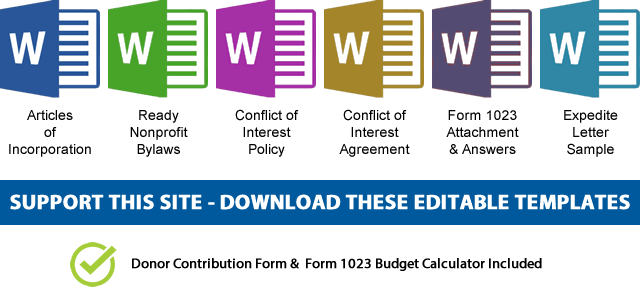Withholding Income Tax for Church Ministers
Unlike other exempt organizations or businesses, a church isn’t required to withhold income tax from the compensation it pays to its duly ordained, commissioned or licensed ministers for performing services in the exercise of their ministry. An employee minister may, however, enter into a voluntary withholding agreement with the church by completing IRS Form W-4, Employee’s Withholding Allowance Certificate. A church should report compensation paid to a minister on Form W-2, Wage and Tax Statement, if the minister is an employee, or on IRS Form 1099-MISC, Miscellaneous Income, if the minister is an independent contractor.
Parsonage or Housing Allowances of Church Ministers and pastors
Generally, a church minister’s gross income does not include the fair rental value of a home (parsonage) provided, or a housing allowance paid, as part of the minister’s compensation for services performed that are ordinarily the duties of a minister.
A minister who is furnished a parsonage may exclude from income the fair rental value of the parsonage, including utilities. However, the amount excluded can’t be more than the reasonable pay for the minister’s services.
A minister who receives a housing allowance may exclude the allowance from gross income to the extent it’s used to pay expenses in providing a home.
Generally, those expenses include rent, mortgage payments, utilities, repairs and other expenses directly relating to providing a home. If a minister owns a home, the amount excluded from the minister’s gross income as a housing allowance is limited to the least of:
- (a) the amount actually used to provide a home,
- (b) the amount officially designated as a housing allowance or
- (c) the fair rental value of the home.
The minister’s church or other qualified organization must designate the housing allowance by official action taken in advance of the payment. If a minister is employed and paid by a local congregation, a designation by a national church agency won’t be effective. The local congregation must make the designation. A national church agency may make an effective designation for ministers it directly employs. If none of the minister’s salary has been officially designated as a housing allowance, the full salary must be included in gross income.
The fair rental value of a parsonage or housing allowance is excludable from income only for income tax purposes. These amounts are not excluded in deter- mining the minister’s net earnings from self-employment for Self-Employment Contributions Act (SECA) tax purposes. Retired ministers who receive either a parsonage or housing allowance aren’t required to include the amounts for SECA tax purposes.
As mentioned above, a minister who receives a parsonage or rental allowance excludes that amount from his income. The portion of expenses allocable to the excludable amount is not deductible. This limitation, however, does not apply to interest on a home mortgage or real estate taxes, nor to the calculation of net earnings from self-employment for SECA tax purposes.
IRS Publication 517, Social Security and Other Information for Members of the Clergy and Religious Workers, has a detailed example of the tax treatment for a housing allowance and the related limitations on deductions. IRS Publication 525, Taxable and Nontaxable Income, has information on particular types of income for ministers.
Social Security and Medicare Taxes of Church Ministers
The compensation that a church or religious organization pays to its ministers for performing services in the exercise of ministry is not subject to Federal Insurance Contributions Act (FICA) taxes. However, income that a minister earns in performing services in the exercise of his ministry is subject to Self-Employment Contributions Act (SECA) tax, unless the minister has timely applied for and received an exemption from SECA tax.
Payment of Employee Business Expenses
A church or religious organization is treated like any other employer as far as the tax rules on employee business expenses. The rules differ depending upon whether the expenses are paid through an accountable or non-accountable plan, and these plans determine whether the payment for these expenses is included in the employee’s income.
Accountable Reimbursement Plan
An arrangement that an employer establishes to reimburse or advance employee business expenses will be an accountable plan if it:
- involves a business connection,
- requires the employee to substantiate expenses incurred and,
- requires the employee to return any excess amounts.
Employees must provide the organization with sufficient information to identify the specific business nature of each expense and to substantiate each element of an expenditure. It isn’t sufficient for an employee to aggregate expenses into broad categories such as travel or to report expenses through the use of non-descriptive terms such as miscellaneous business expenses. Both the substantiation and the return of excess amounts must occur within a reasonable time.
Employee business expenses reimbursed under an accountable plan are:
- (a) excluded from an employee’s gross income,
- (b) not required to be reported on the employee’s IRS Form W-2, Wage and Tax Statement, and
- (c) exempt from the with- holding and payment of wages subject to FICA taxes and income tax withholdings.
Non-accountable Reimbursement Plan
If the church or religious organization reimburses or advances the employee for business expenses, but the arrangement does not satisfy the three requirements of an accountable plan, the amounts paid to the employees are considered wages subject to FICA taxes and income tax withholding, if applicable, and are reportable on Form W-2. (Amounts paid to employee ministers are treated as wages reportable on Form W-2, but are not subject to FICA taxes or income tax withholding.)
For example, if a church or religious organization pays its secretary a $200 per month allowance to reimburse monthly business expenses the secretary incurs while conducting church or religious organization business, and the secretary is not required to substantiate the expenses or return any excess, then the entire $200 must be reported on Form W-2 as wages subject to FICA taxes and income tax withholding. In the same situation involving an employee-minister, the allowance must be reported on the minister’s Form W-2, but no FICA or income tax withholding is required.
One common business expense reimbursement is for automobile mileage. If a church or religious organization pays a mileage allowance at a rate that is less than or equal to the federal standard rate, the amount of the expense is deemed substantiated. (Each year, the federal government establishes a standard mileage reimbursement rate.) There are no income or employment tax consequences to the reimbursed individual provided that the employee substantiates the time, place and business purposes of the automobile mileage for which reimbursement is sought. Of course, reimbursement for automobile mileage incurred for personal purposes is includible in the individual’s income.
If a church or religious organization reimburses automobile mileage at a rate exceeding the standard mileage rate, the excess is treated as paid under a non- accountable plan. This means that the excess is includible in the individual’s income and is subject to the withholding and payment of income and employment taxes, if applicable.
In addition, any mileage reimbursement that is paid without requiring the individual to substantiate the time, place and business purposes of each trip is included in the individual’s income, regardless of the rate of reimbursement.
No income is attributed to an employee or a volunteer who uses an automobile owned by the church or religious organization to perform church-related work.
 NOTE: If you’d like to receive the following organizing documents:
NOTE: If you’d like to receive the following organizing documents:- Nonprofit Articles of Incorporation,
- Nonprofit Bylaws,
- Nonprofit Conflict of Interest Policy,
- Conflict of Interest Policy Acknowledgment,
- Form 1023 Attachment with all the answers,
- Form 1023 Expedite Letter template,
- and Donor Contribution Form
in Microsoft Word Document format, please consider making a donation and you’ll get to download them immediately. Not only they're worth well over $1000 in value, they will save you weeks of copy pasting and formatting as they are ready to go templates which only need changing names and addresses.

